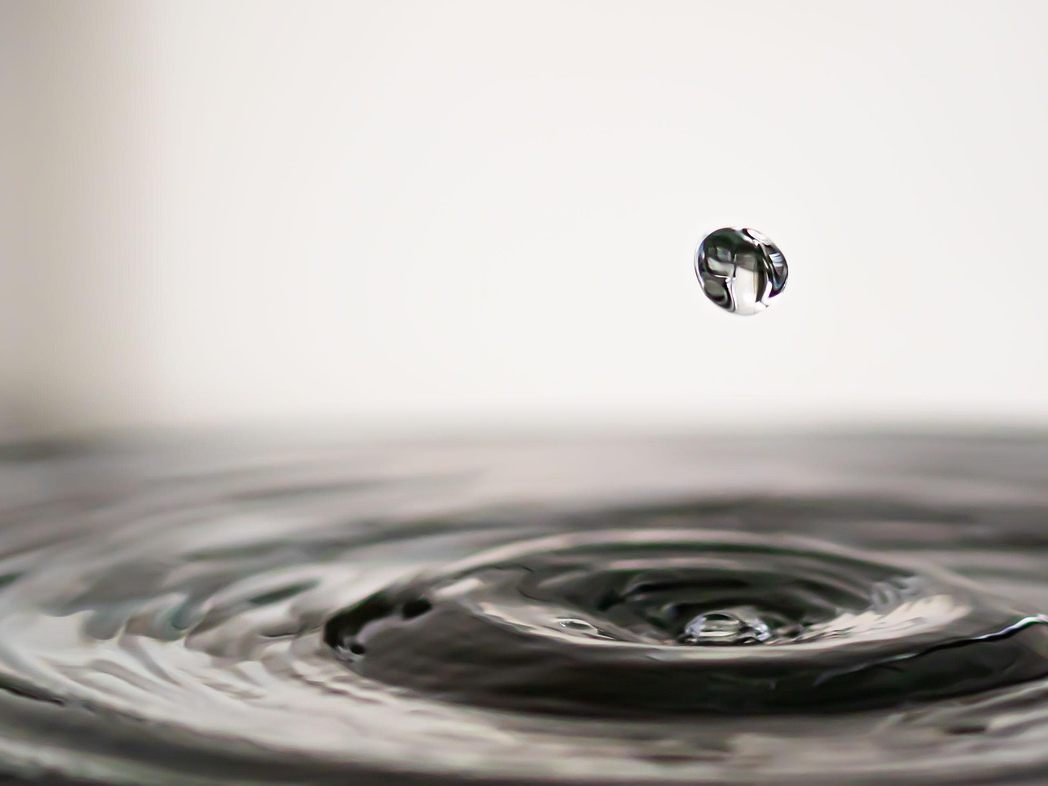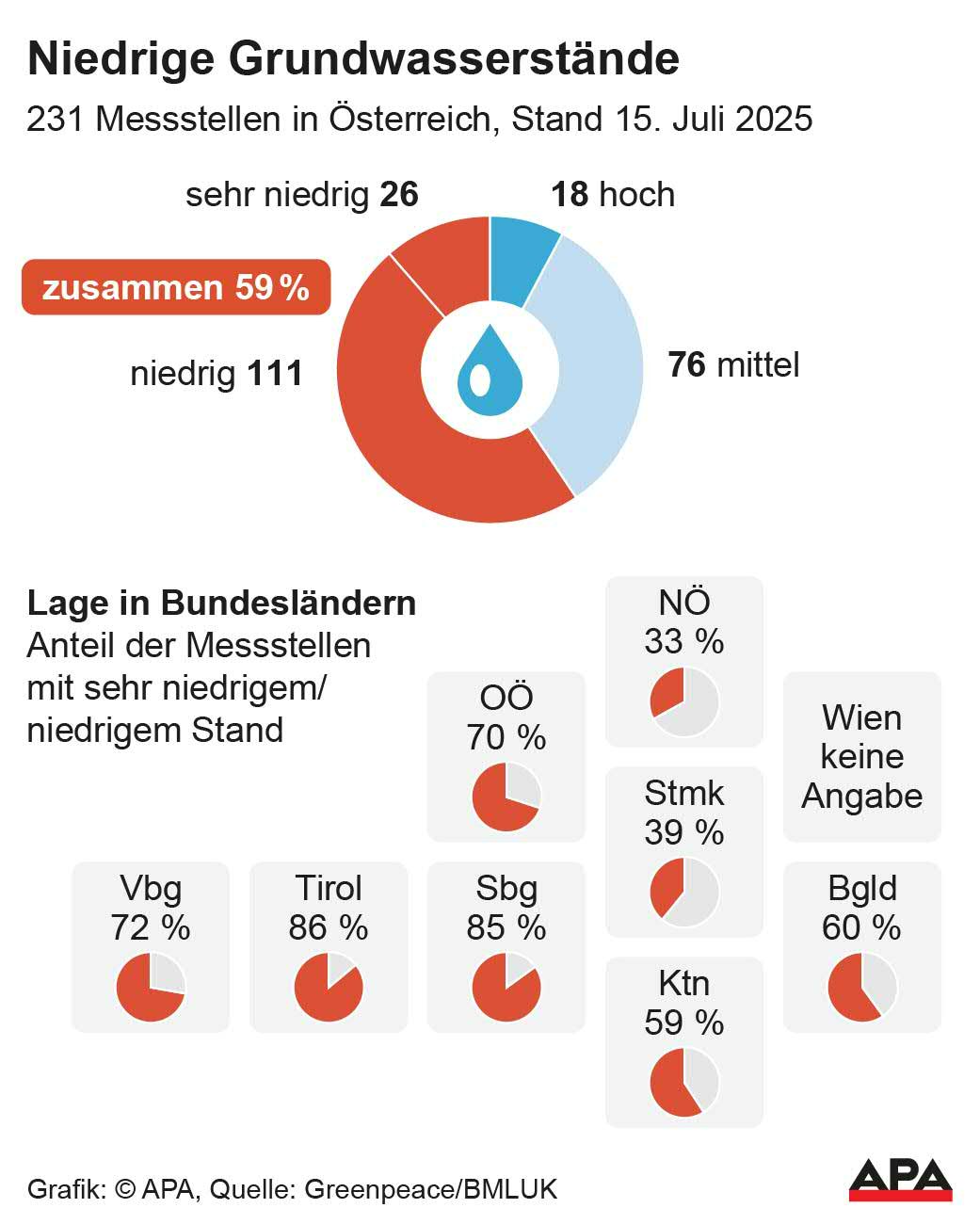Groundwater in Austria: Every Tenth Monitoring Station at Record Low Level

"At more than one in ten groundwater measuring stations, the water level is as low as it has ever been in mid-July. The western federal states are particularly affected, where the snow-poor winter and rain-poor spring are still having a drastic impact," Greenpeace warned in a statement on Wednesday.
Groundwater in Austria: Greenpeace calls for a change in water policy
The water balance is under pressure, and the rainfall in July has not changed that, said Sebastian Theissing-Matei, water expert at Greenpeace, referring to the climate crisis. The west-east divide is clearly evident in the comparison of federal states: In Tyrol, 86 percent of the measuring stations are at a low or very low level. In Salzburg, it is 85 percent - in Burgenland, 60 percent of all measuring stations show low values.

From the NGO's perspective, Austria is not sufficiently prepared for the increasing competition for the increasingly scarce water. A real change in water policy would not only require the announced water extraction register but also a comprehensive water strategy that includes all areas of consumption and the renaturation of river courses, as these would be able to absorb and store precipitation better. "What we fail to do now will cost us dearly tomorrow," warned Theissing-Matei.
Groundwater problem not only in Austria
Among the Greenpeace demands, which have already been raised by the NGO in the course of an analysis of the water volumes in Austria's rivers, is the pricing of water extractions by industrial companies. Such a price would have to be prescribed by the government if these extractions "affect water availability or the environment. This is actually already regulated in Article 9 of the EU Water Framework Directive. Currently, industrial companies in Austria generally pay nothing for the direct extraction of the common good water," it said.
A groundwater problem has existed for several years not only in Austria but throughout Europe. Among other things, the TU Graz pointed out in a study published in 2023, referring to satellite evaluations, that the continent is suffering from a severe drought. "Across the entire continent, the groundwater level has been consistently low since 2018, even if extreme weather events with floods temporarily present a different picture," reported the TU Graz at the time. For experts, this is attributed to the consequences of man-made climate change.
(APA/Red)
This article has been automatically translated, read the original article here.





